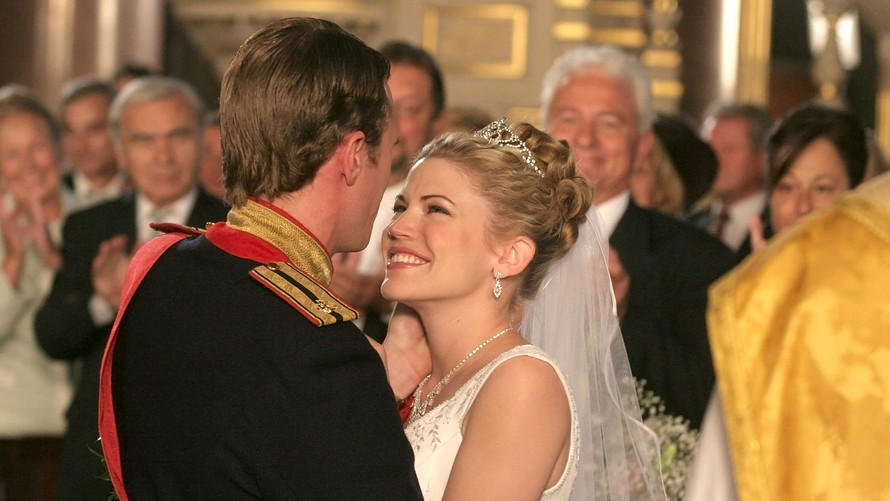
Does the size of your partner’s bank account matter?
People are more realistic than romantic by the time they wed, Abby Rodman, a psychotherapist in Boston, told MarketWatch. “We’re living in a time when people are waiting longer to get married,” she said. “Today, both genders are closing in on 30 by the time they tie the knot. If they’ve already experienced a long-term, ‘head over heels’ relationship before marriage, they’ve also learned that those crazy in love feelings do subside over time.” She described this as a “somber maturity.”
Rsearch supports her theory. Some 56% of Americans say they want a partner who provides financial security more than “head over heels” love (44%), a survey released Friday by Merrill Edge, an online discount brokerage and division of Bank of America Merrill Lynch BAC, -0.24% found. This sentiment is held in almost equal measure by both men and women (54% and 57%). Generation Z (born between 1996 and 2010) is the only cohort to choose love (54%) over money.
Merrill Edge polled more than 1,000 people aged 18 to 40 with investable assets between $20,000 and $250,000. For this purpose, investable assets was defined as the value of all cash, savings, mutual funds, CDs, IRAs, stocks, bonds and all other types of investments such as a 401(k), 403(b), and Roth IRA, but excluding a primary home and other real estate investments. Aron Levine, head of Consumer Banking and Merrill Edge, blamed “uncertainty and a lack of financial planning.”
And even though they want partners with a certain socioeconomic status, the respondents said they remained coy about their own finances. They ranked nearly all major relationship milestones — including meeting their prospective in-laws, being intimate, traveling together and discussing politics — ahead of discussing their finances. They said they postpone the “money talk” with their significant others, especially when the topic is debt (60%), salary (57%), investments (55%) and spending habits (51%).
Priorities may change with a second wedding
Such attitudes may also depend on whether it’s wedding No. 1, 2 or 3. “I am a hopeless romantic,” said Randy Kessler, who wrote the book, “Divorce: Protect Yourself, Your Kids, and Your Future,” and also practices family law in Atlanta, Ga. “I still think people marry more for romance than for finance. However, for a second or third marriage, people may be looking for financial security after their divorce left them with a sense of severe financial insecurity.”
Jacqueline Kennedy Onassis reportedly said, ”The first time you marry for love, the second for money and the third for companionship.” Whether or not that quote is apocryphal, after the death of President Kennedy, “Jackie’s next step was to think about her children, including their financial security,” said Fran Walfish, author of “The Self-Aware Parent” and a Beverly Hills psychotherapist. “Marriage doesn’t hold the same lifelong commitment that it did in prior generations,” she said.
This is not the first study to find that love, marriage and socioeconomic status go hand-in-hand. A recent analysis of U.S. Census Bureau data by the Pew Research Center, found that, among adults ages 25 and older, 65% with a four-year college degree were married, compared with 55% of those with some college education and 50% among those with no education beyond high school. “Twenty-five years earlier, the marriage rate was above 60% for each of these groups,” it said.
Financial security was a big factor in choosing to get married at all. Never-married adults with family incomes under $75,000 are more likely than those with higher incomes to say that “not being financially secure” is a major reason they are not married: 47% of those with incomes less than $30,000 and 40% of those with incomes of $30,000 to $74,999 say the same thing. And just 21% of those with incomes of $75,000 or higher say that.
Rodman says the retirement industry has contributed to this focus on financial security, which she says is not necessarily a bad thing. ”We’re bombarded with warnings that we’re not saving enough for retirement,” she said. “Nothing spells financial anxiety more than the threat of growing old impoverished. So, if you don’t have enough money, where will you get it? Marrying someone who has some wealth is one way to sidestep that potentially bleak future.”
Modern life is also expensive. “It’s easy to understand why marrying with an eye toward financial stability is attractive,” she added. “Kids are expensive. Homes are expensive. Heck, even weddings are a fortune! People who watched their parents struggle don’t want to do the same. If we’re going to pledge our lives to someone, why not have it be a financially secure one?” She adds one caveat: “If you’re going to marry for money, you might want to be sure the other person has it.”
Wealthier men and women want different things
Singletons also look for signs that their potential partner has money. For instance, iPhone owners are 21 times more likely to judge others negatively for having a less expensive Android, while those who have an Android are only 15 times more likely to judge others negatively for having an iPhone. And those who have older models of either smartphone are 56% less likely to get a date, according to a recent survey of more than 5,500 singletons aged 18 and over by dating site Match.com.
Another twist: Different sexes want different things, especially if they are financially secure. Men with higher incomes showed stronger preferences for women with slender bodies, while women with higher incomes preferred men with a steady income, according to this survey of 28,000 heterosexual men and women aged between 18 and 75 from Chapman University in Orange, Calif., and published in the January 2016 edition of the journal “Personality and Individual Differences.”
And wealthier couples don’t necessarily last longer than those who earn less. Indeed, the more you spend on a wedding ceremony, the shorter the marriage, according to a survey of 3,000 couples released in 2014 by two professors in the Department of Economics at Emory University in Atlanta. Couples who spend $20,000 on their wedding are 46% more likely than average to get divorced; that risk falls to 29% higher than average for those who spend $10,000 to $20,000.
So what does it all mean? Money matters in matrimony as much as love. “I’ll go out on a limb pretty confidently here,” Rodman said. “Marrying for love is the only good reason to marry. The beauty is most of us have the freedom to do that. And, if we’re lucky enough, we get to exercise it. Because when life gets tough — and it always does — it’s the love that will sustain you, not the cash. And if marrying for money is still on your to-do list, you know what they say: ‘You’ll earn every cent.’”
























